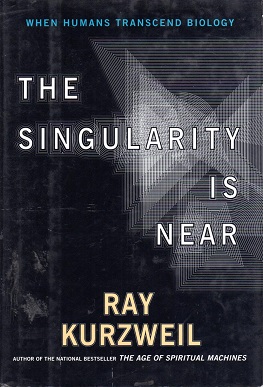An unholy alliance between corruption, internet censorship and the plot against popular sovereignty has been exposed in Turkey by the aggressive reaction of Erdogan’s government to a controversial leaked audio tape.
In the audio tape, which cannot be watched in Turkey as a result of a block on video sharing site YouTube, high-ranking government officials brazenly speak of attacking their own people. This, they intend as a false flag attack to spark a wider regional conflict.
To quote intelligence chief Hakan Fidan’s own words, Erdogan’s government wants to “make up a cause of war by ordering a missile attack on Turkey”, thereby killing his own people for an excuse to kill even more. Given the Erdogan government’s vile commitment to deepening the crisis in Syria by trafficking weapons, it should surprise none of us that this incapable regime is developing a stronger appetite for the blood of its own people too.
Tragic events in Turkey’s streets in 2013 and 2014, such as the corrupt government’s killing and vilification of the young boy Berkin Elvan, who died after a head injury from a teargas canister when buying bread during the brutal police response to the Gezi protests of 2013, have exposed the increasingly repressive and arrogant nature of the incumbent government in Turkey. Opposition to the government has resurged in 2014, stirred on by the increasing evidence of Erdogan’s corruption, such as a tape verified by experts in which he is telling his son to “get rid of” large amounts of money.
The move to block YouTube on “national security” grounds can be taken only as confirmation that the tape, in which a false-flag attack against the Turkish people is considered, is authentic. This regime, which claims to represent the interests of the Turkish people, seriously considered and continues to consider attacking the Turkish people and dragging Turkey into a regional conflict.
Given that the ruling government officials in Turkey apparently have no “national security” concerns over a missile attack launched by them on the territory of their own country, we are left wondering what definition these officials are using for “national security”. Perhaps it is something similar to the same “national security” that their Pentagon idols talk about whenever inconvenient truths are exposed, as with Manning’s disclosure of US mass murder in Iraq. As Undersecretary Sinirlioğlu says in the leaked tape itself, “our national security has become a common, cheap domestic policy outfit.” This is true in all NATO countries, where governments trigger wars that are blatantly not in the national interest, and yet they still ask the nation to die in such wars.
The cheapening of national security as an outfit to strengthen any regime’s hold over its own people and the surrounding region has occurred in the capitals of other pro-Pentagon regimes, where people have been far too easily duped that closed-door national security decisions are really about the security of the nation in question. Crying wolf with fictive national security narratives, when only the security of the regime’s stranglehold on the nation is really at stake, threatens the whole nation. By being able to trade away national security for state secrecy, and conflate the two, a regime will have irrevocably cheapened the lives of its citizens, with or without mounting actual false flag attacks against those citizens.
Turkish Foreign Minister Ahmet Davutoğlu has responded by describing the act of leaking of the tape itself as an act of treachery against Turkey and a “declaration of war,” in spite of the fact that it was his own regime’s intelligence chief who declared the intent to attack his own country by firing missiles into the territory of Turkey. Evidently forgetting the need to save Turkish lives, the Foreign Minister stated, “Wiretapping our prime minister, ministers and top officials is an open declaration of war against the Turkish Republic.”
During the leaked conversation, the Foreign Minister seems completely unconcerned at the prospect of a missile attack into Turkish territory by his own government colleagues. After reading the leaked conversation, we should all reconsider Davutoğlu’s claim that the ones who leaked evidence of his treason are the traitors, or if in fact he and his Erdogan regime are the traitors because they have declared their intent to attack the territory of their own country.
Whether the enemies of Turkey are the ones who reveal the truth to the people, or the ones who conspire to fire missiles at the people, is up to the Turkish people to decide. The state gets its legitimacy from the people. Therefore, ministers do not get to dictate who the traitor is. That is for the Turkish people to decide, after being presented with the uncensored truth about what hideous things are being said and done behind closed doors in the name of their “national security”.
The heroic insiders who leaked evidence of the Erdogan regime’s treason against the Turkish people are no enemies of Turkey, nor have they declared war on Turkey, as feverishly claimed by the panicking government. On the contrary, the government’s highest-ranking officials have been caught stating their intent to attack their own people. For those who still find this difficult to believe, their own leaked words are available for everyone to hear.
It is the Erdogan regime that has committed the most despicable act of treason, and has declared a willingness to attack its own people. In the knowledge of this, it is the responsibility of the Turkish people to respond by calling for the resignation of these tumorous people at the heart of government, before they can threaten Turkey’s national security by committing deception and murder in their country’s name.
By Harry J. Bentham - More articles by Harry J. Bentham
Originally published on March 30 at Press TV










